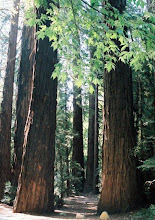 Quilters tend to be very dedicated people for several reasons. It's quite a process from picking out a pattern and material to cutting and piecing, sewing, quilting and piecing and binding it together. It is an art I have long admired not only because the outcome is often beautiful and practical but it is often done for others.
Quilters tend to be very dedicated people for several reasons. It's quite a process from picking out a pattern and material to cutting and piecing, sewing, quilting and piecing and binding it together. It is an art I have long admired not only because the outcome is often beautiful and practical but it is often done for others.Quilts traditionally have three layers: the patterned top, the batting, and the backing. The top can be made of simple squares, scraps of cloth (called crazy quilt), or intricate patterns of squares, rectangles, and triangles. The contrast of dark and light colors bring out different aspects of the patterns and add depth. The batting provides insulation to the light cotton layers making the quilt warm and the loft of the filling can add dimension to designs. The backing is usually of one material and its simplicity shows off the quilted sewing. Quilting can be done by one person alone or after the top is assembled, the quilt may be pinned into a frame and several people can sit around the quilt and sew.
I have been privileged to have been around several groups of church women who quilt. It is from them I have learned most of what I know about quilting. Often they are groups that have been together for many years changing membership over the years.
One group kept asking me to join them in sewing. I kept telling them I was no good at it but they insisted. I finally gave in one day and picked up a needle and took my place at the quilt. They were quick to teach and help me and soon I was sewing away even though I knew I was not able to match their small even stitches. After a while, I got up to take a break. I took my time because I knew I wasn't doing well and went into the kitchen for a cup of coffee. I looked over at the women to see one of them carefully undoing most of the stitches I had added and trying to quickly fix them before I returned. They were trying so hard not to let on how badly I had sewn but I knew all along.
I have seen a lot of quilts made; some have been works of art, often made as donations to raise money for different ministries or as gifts but most have been far simpler: large blocks that are tied together to make blankets for Lutheran World Relief. These quilts are gifts of love that literally span the world and are given in times of disaster and need. They may be used as blankets or even beds in hospitals or refugee camps, as shelter from the sun, bundled up to carry a family's few possessions; or worn to keep out the cold. Sewn by the hundreds and thousands every year, they are tangible signs of Christ's love and his command to care for the least of these our brothers and sisters.
One of the earliest stories of women's ministry that we have comes from the book of Acts. A woman named Tabitha (or Dorcas in Greek) dies and they send for Peter. In their grief, they plead with Peter to do something. They show him some of the clothing and things that she made. She made a huge difference in the lives of those in need and they can't imagine life without her. Who will take over her ministry?
I worry the same thing about the ministry in the church today not just of making quilts but all of the ministries we support. Our lives have become so busy and divided by so many tasks and loyalties that it seems almost impossible to take the time to spend an afternoon or evening together doing something that benefits others. But I can't think of a better way to spend a few hours sharing conversation, a snack, and the benefit of knowing that your time together helps other people. Together, our hands can truly change the world and make a difference in other people's lives and through these acts, the good news of Jesus Christ is made known. Pray about how your hands may become God's hands in the world. Read Acts 9:36-43.



